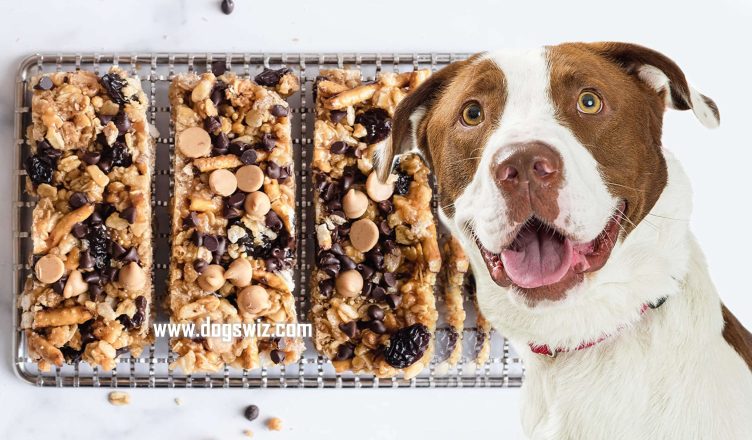As a dog lover, you must be pretty aware of your pup’s desire to chew and gnaw on objects. So, it may seem like granola bars would make great treats for your dog. Since granola bars have become one of the most portable snacks for us, you may be wondering if your pup can eat them as well. Can dogs eat granola bars? Are they safe for your dog? Let’s find out!
Can Dogs Eat Granola Bars?
The answer to the question depends on the individual ingredients of the Granola bar. Granola bars have many different ingredients that differ greatly with every manufacturer. The ingredients in most of these bars are healthy for you and your dog, but there are a few ingredients that you should be wary of. Here, we’ll explore which ingredients in commercial granola bars are problematic for your dogs.
Are Granola bars harmful to my dog?
If you look a bit closer at the ingredients inside most commercial granola bars, you may notice that all granola bars are not really simple. Some granola bars contain high-fat nuts, which can be difficult for dogs to process and may also be allergic. Granola bars are full of fiber, which is a good thing for humans, but it can be bad for dogs.
Some granola bars may contain a lot of carbs and sugar. Too much fiber intake could lead to diarrhea and gastrointestinal problems in your dog. Also, too much sugar consumption can be vulnerable for your dog as it causes canine obesity. So, it should be noted that granola bars are to be given as a treat occasionally and not regularly in order to avoid canine obesity.
4 Ingredients That Make Granola Bars Toxic for Dogs
You may be surprised to know that some granola bars may contain ingredients that are life-threatening to your dog. In any case, those kinds of granola bars must be avoided. Some of the harmful ingredients that granola bars may contain are:
Raisins
We enjoy the sweet and sour taste of grapes. But make sure to never share grapes or raisins with your canine companions. It is unclear as to why grapes and raisins are toxic to dogs, though. Researchers suggest that pesticides or some fungus might be the root problem, but no single cause has yet been determined.
Many of the adverse effects of consuming raisins are lethargy, vomiting and diarrhea, stomach pain, nausea, and kidney failure. So it is better to avoid grapes and raisins from your dog’s diet.
Xylitol
One of the main ingredients for granola bars is Peanut Butter. Peanut butter has Xylitol as a sweetening agent. Not only Peanut butter but chewing gums, yogurt, and most dairy products have xylitol. Particularly small quantities of xylitol can induce hypoglycemia (low blood sugar), epilepsy, liver failure, or even death in dogs. It is best to avoid xylitol for your dogs. However, peanut butter that does not contain xylitol is safe for your dog. Want to know more? Read our article about peanut butter for dogs.
Macadamia nuts
While experts have not discovered the precise explanation why macadamia nuts are harmful to dogs, one thing is certain that even a tiny quantity of macadamia nuts will significantly affect your dog’s health. Dogs who consume these nuts can have symptoms such as dehydration, hyperthermia, fatigue, and even depression.
Chocolates
Chocolates or other cocoa items are particularly harmful to dogs because they contain toxins such as theobromine and caffeine. Since theobromine cannot be quickly broken down by a dog’s body, it slows down its digestive process. As a result, this provides time for the toxic amount of the chemical to accumulate in their bloodstream.
Caffeine consumption also accelerates the heart pace of a dog, possibly leading to life-threatening cardiac arrhythmias, a disease that causes the heart to beat irregularly.
Conclusion
Overall, yes, you can give your dog a granola bar as an occasional treat. However, be super careful while choosing one. As long as it does not have the above-mentioned harmful ingredients, these portable munchies can work as a handy treat as well as positive reinforcement for your dog training session.
Now that you know how you can safely feed granola bars to your dog, explore more about other dog food here.
Have you ever given granola bars to your dog? Do they like it? We would love to know. Please share with our community by leaving a comment below.
